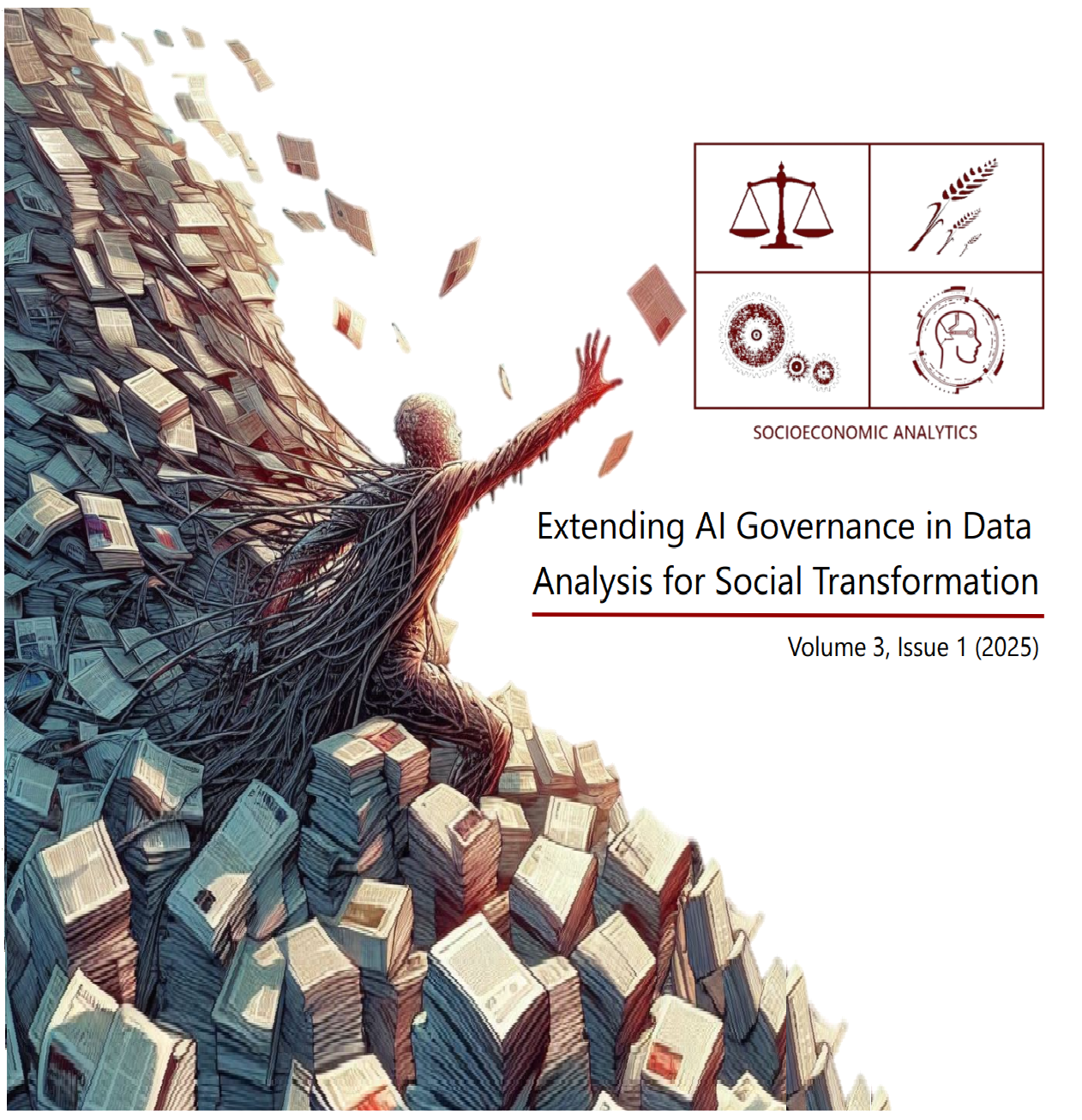Macroeconomic Dynamics in Pakistan: A VAR Model Analysis of GDP, Inflation, Imports, Exports, and Interest Rates
DOI:
https://doi.org/10.29327/2565368.3.1-2Keywords:
Time Series Analysis, macroeconomic stability, Vector Autoregression, monetary policy, trade shocks, Granger causality, emerging marketsAbstract
This research explores dynamic relationships between Pakistan's key macroeconomic variables - GDP, inflation, interest rates, imports, and exports - using a Vector Autoregression (VAR) approach to fill significant gaps in understanding Pakistan's distinct economic dynamics. With high-frequency time-series data (1990-2024) from reliable sources such as the State Bank of Pakistan and World Development Indicators, we apply a robust econometric strategy involving Augmented Dickey-Fuller tests for stationarity, Granger causality, Impulse Response Functions, and Forecast Error Variance Decomposition. The findings are three: first, monetary policy indicators (interest rates and inflation) are found to be leading determinants of economic variability, with interest rates showing strong Granger-causal effects on GDP (p<0.05); second, trade indicators show asymmetric reaction to domestic and foreign shocks, making large contributions to medium-term variability in the economy; third, variance decomposition shows monetary variables have more than 60% of forecast error in GDP for horizons greater than five years. These findings present new empirical evidence favoring integrated policy approaches that simultaneously manage monetary stability and trade competitiveness, providing practical implications for emerging economies with the same structural issues. The methodological strength and policy-oriented implications make the study important to the applied macroeconomics literature, especially for developing countries dealing with sophisticated stabilization-reform trade-offs.
References
Sims, C. A. (1980). Macroeconomics and reality. Econometrica: journal of the Econometric Society, 1-48.. https://doi.org/10.2307/1912017
Johansen, S. (1991). Estimation and hypothesis testing of cointegration vectors in Gaussian vector autoregressive models. Econometrica: journal of the Econometric Society, 1551-1580. https://doi.org/10.2307/2938278
Engle, R. F., & Granger, C. W. (1987). Co-integration and error correction: representation, estimation, and testing. Econometrica: journal of the Econometric Society, 251-276. https://doi.org/10.2307/1913236
Khan, M. S., & Senhadji, A. S. (2001). Threshold effects in the relationship between inflation and growth. IMF Staff Papers, 48(1), 1–21. https://doi.org/10.5089/9781451844732.001
Abbas, S., & Husain, F. (2006). Money, income, and prices in Pakistan: A bivariate and trivariate causality analysis. South Asia Economic Journal, 7(2), 247–260. https://doi.org/10.1177/139156140600700206
Qayyum, A. (2006). Money, inflation, and growth in Pakistan. The Pakistan Development Review, 45(2), 203–212.
Anwar, M. S., & Nguyen, L. P. (2010). Channels of monetary policy transmission in Vietnam. Asian Economic Journal, 24(4), 357–373. https://doi.org/10.1111/j.1467- 8381.2010.02043.x
Hussain, H., & Malik, S. (2011). Inflation and economic growth: Evidence from Pakistan. International Journal of Economics and Finance, 3(5), 262–276. https://doi.org/10.5539/ijef.v3n5p262
Ali, S., & Rehman, H. U. (2015). Causality between trade openness and GDP growth: Evidence from Pakistan. Economic Modelling, 45, 118–125. https://doi.org/10.1016/j.econmod.2014.12.012
Huq, M. A. (2023). Monetary depreciation and export performance of Bangladesh: Value does matter. Retrieved from https://core.ac.uk/download/587418268.pdf
Zaidi, S. A. (2015). Issues in Pakistan’s economy: A political economy perspective. Oxford University Press.
Gujarati, D. N., & Porter, D. C. (2021). Basic econometrics (6th ed.). McGraw-Hill Education.
Islam, R., & Chowdhury, A. (2005). Globalisation, finance and growth in South Asia. Routledge. https://doi.org/10.4324/9780203025705
International Food Policy Research Institute (IFPRI). (2023). Global food policy report 2023: Rethinking food crisis responses. https://doi.org/10.2499/9780896294417
Galindo, A., & Nuguer, V. (2023). 2023 Latin American and Caribbean macroeconomic report: Preparing the macroeconomic terrain for renewed growth. https://doi.org/10.18235/0004780
Downloads
Additional Files
Published
Issue
Section
License
Copyright (c) 2025 Waseem khoso, Muhammad Rafique Doudpoto

This work is licensed under a Creative Commons Attribution-NonCommercial-NoDerivatives 4.0 International License.
Authors who publish with Socioeconomic Analytics retain the copyright of their work and agree to license it under a Creative Commons Attribution-NonCommercial-NoDerivatives 4.0 International (CC BY-NC-ND 4.0) license. This means that the work can be shared, copied, and redistributed in any medium or format, as long as it is not used for commercial purposes, and the original work is properly cited. The work cannot be changed in any way or used to create derivative works.










